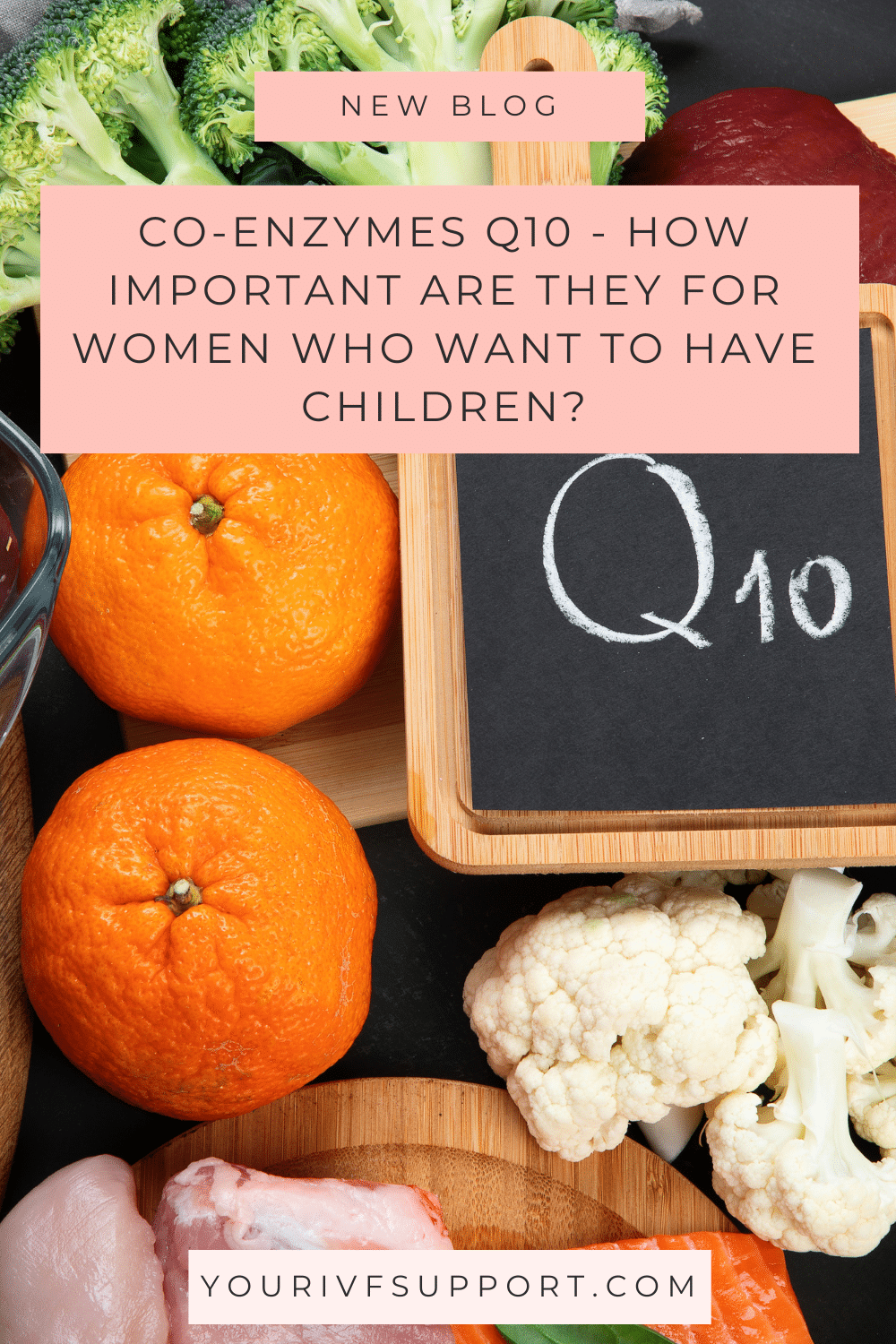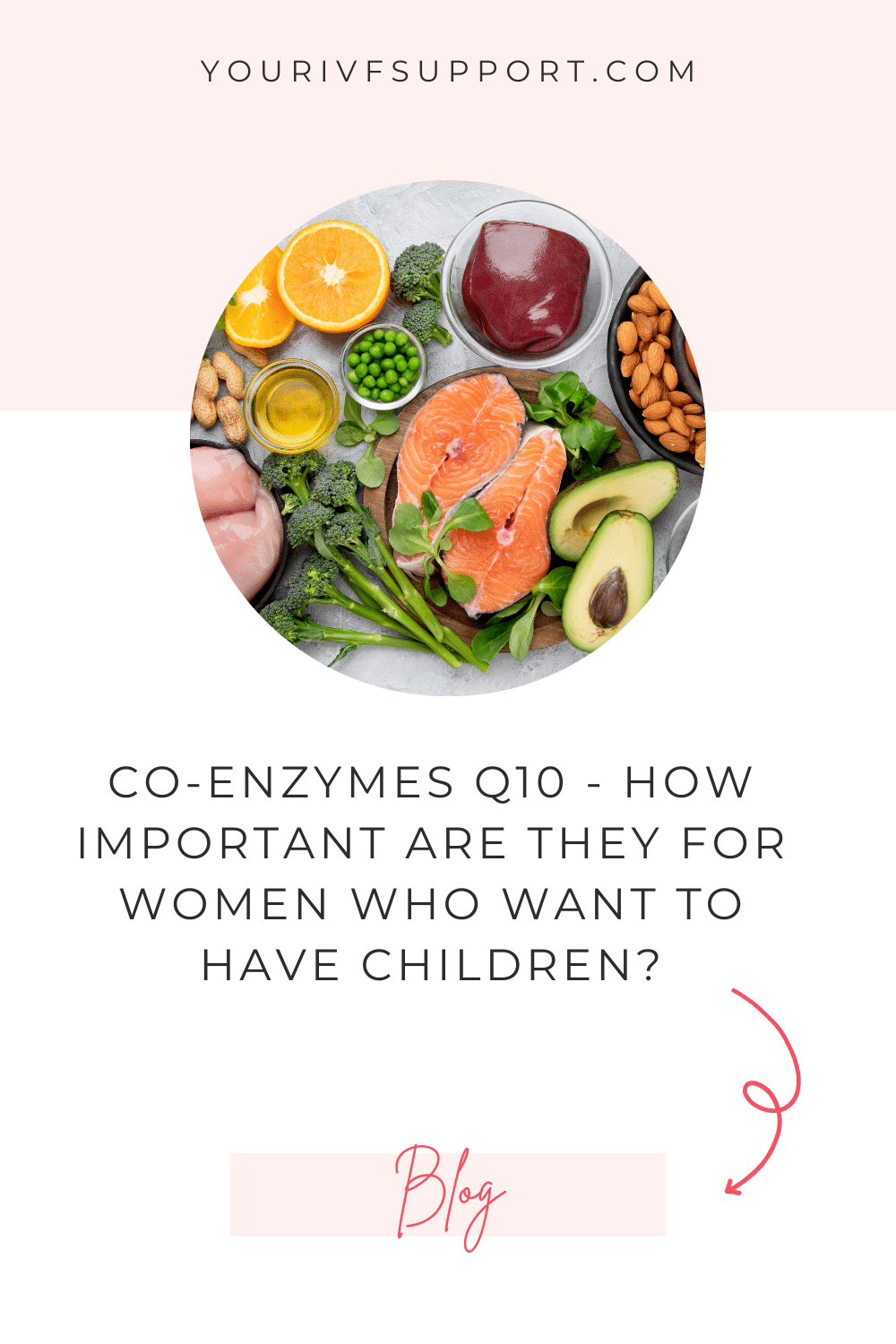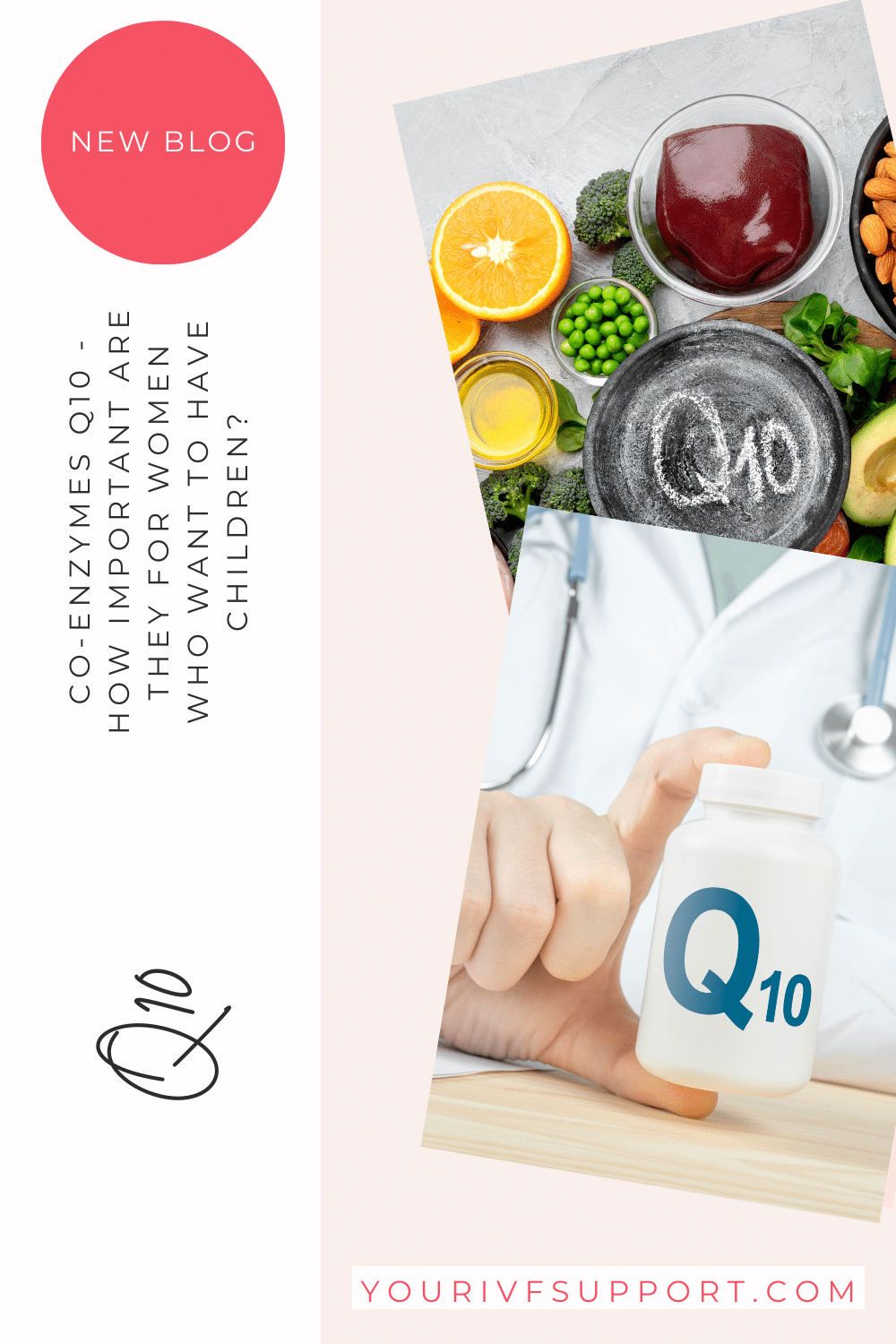Co-enzymes like Q10 are involved in many processes in the body. With its antioxidant effect, the biocatalyst, also called ubiquinone, significantly supports cell health. For women who want to have children and have problems getting pregnant, a good supply of this enzyme is enormously important.
Enzymes are essential building blocks for energy production and energy supply
As an essential building block, the co-enzyme Q10 is needed in all cells of the human body for energy production and energy supply. The protein also acts as a natural antioxidant.
A deficiency of this enzyme leads to delays in vital processes in the organism. If important biofactors are missing, enzyme reactions can only take place with reduced strength. This leads to disturbances in cell function. As a result, oxidative stress increases.
Unwanted and often harmful metabolites stored in the body can cause cell and vascular damage in the long term. If there is too little Q10 over a longer period of time, blood formation, nerve functions, bone formation and skin renewal are also impaired.
Only if we eat a healthy and varied diet does our body produce enough CoQ10. Good enzyme sources are, for example, meat, fish, whole grains, legumes, nuts and vegetable oils. With a healthy diet, the supply of vital co-enzymes should therefore be guaranteed.
Since it is known that co-enzymes such as Q10 can strongly promote fertility in women and men, people with an unfulfilled desire to have children often resort to food supplements with this ingredient. This is understandable and comprehensible, as the amount of available proteins in our body decreases with increasing age.
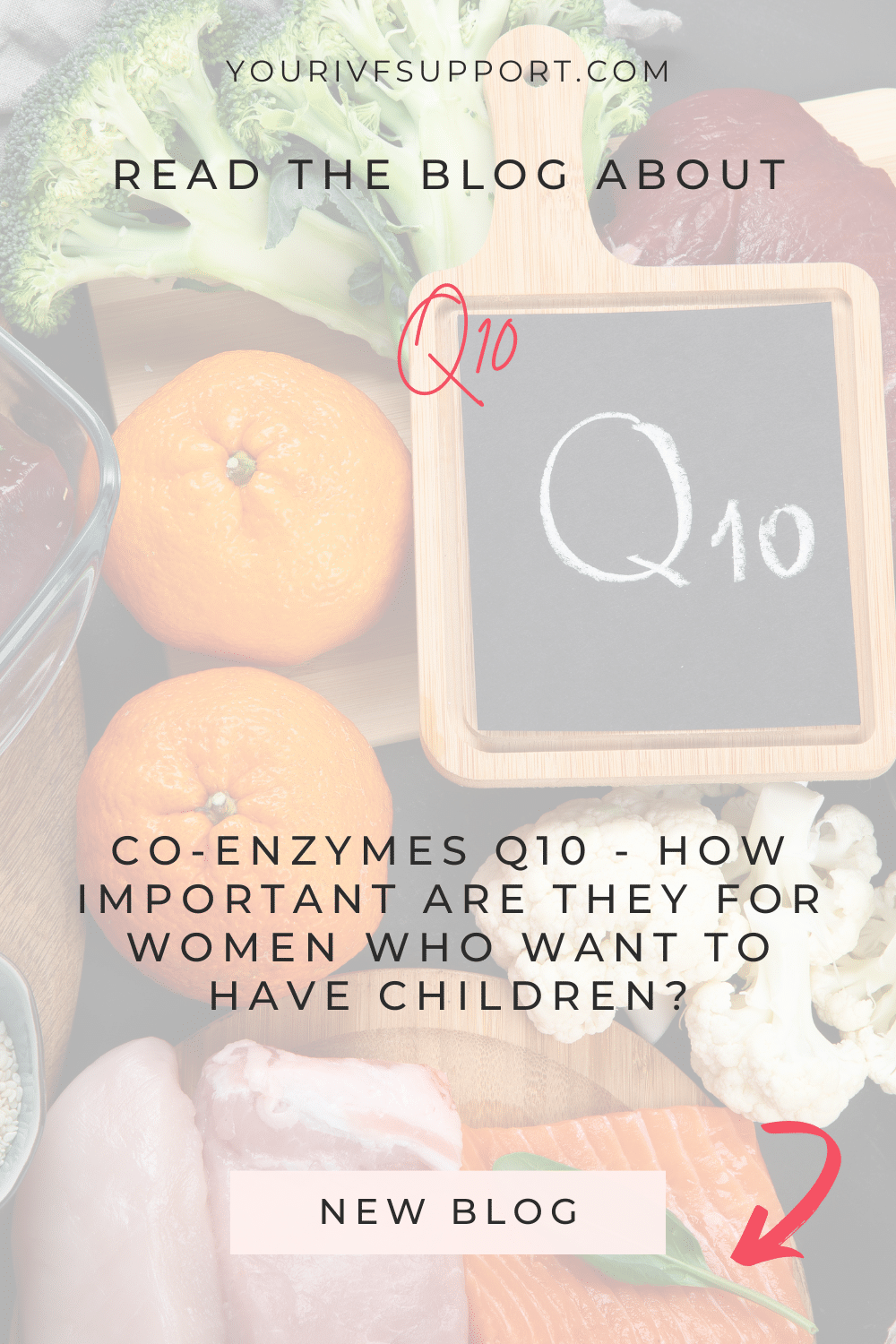
Positive effects on sperm and eggs
A lot of energy is needed for your eggs to mature. Just as much power is needed for the intensive and complicated cell divisions that take place immediately after fertilisation. In reproductive medicine, the positive effects of the co-enzyme Q10 on sperm and eggs are well known.
It is known that oocytes are very susceptible to damage caused by a high concentration of reactive oxygen molecules, the so-called oxidative stress. An excessive amount of free radicals in the human body not only has a negative effect on egg and sperm quality, but also has an unfavourable influence on the fertilisation rate.
If there is a deficiency of co-enzyme, early embryonic development can be impaired or embryo implantation can be prevented. In 2010, an animal study was conducted with mice, which is said to have shown that the administration of high doses of the co-enzyme can lead to an improvement in egg and embryo quality and increase the pregnancy rate.
It is assumed that the risk of malformations in the unborn child, which increases in a pregnant woman with increasing age, can be at least partially reduced by the regular intake of co-enzyme Q10. The reason for this is thought to be the improved energy availability in the oocytes during chromosome distribution during maturation division.
In men, too, various studies have reportedly shown that sufficient Q10 can increase sperm motility. Although no verifiable results are available yet, it is believed that long-term use of co-enzymes could possibly prolong a woman's fertile years.
For women with an unfulfilled desire to have children, this would be a great opportunity. A deficiency of this important enzyme, on the other hand, seems to increase the risk of premature labour and is also associated with a higher risk of miscarriage. Taking a food supplement containing co-enzymes is also said to significantly reduce the risk of pregnancy poisoning (EPH gestosis).
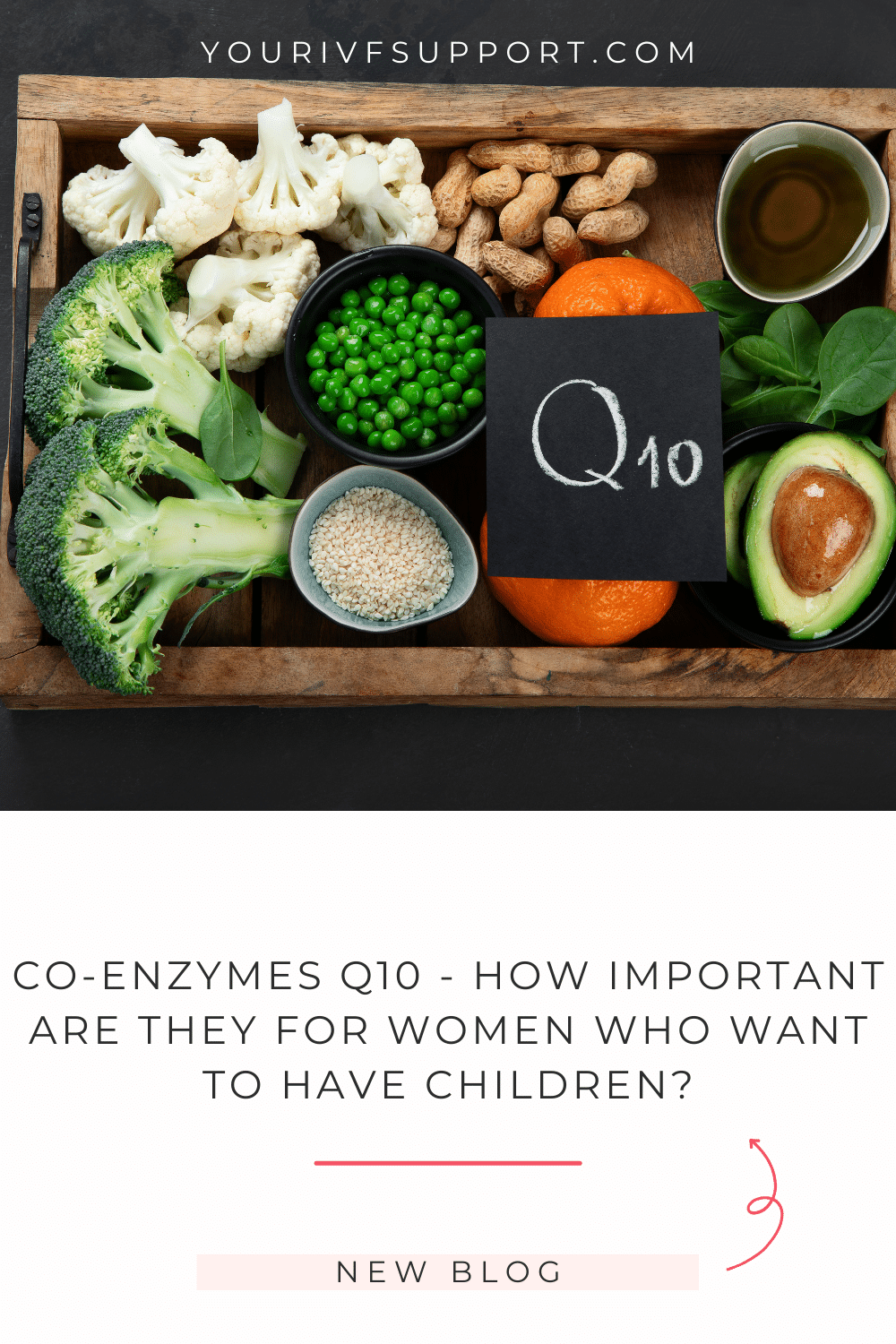
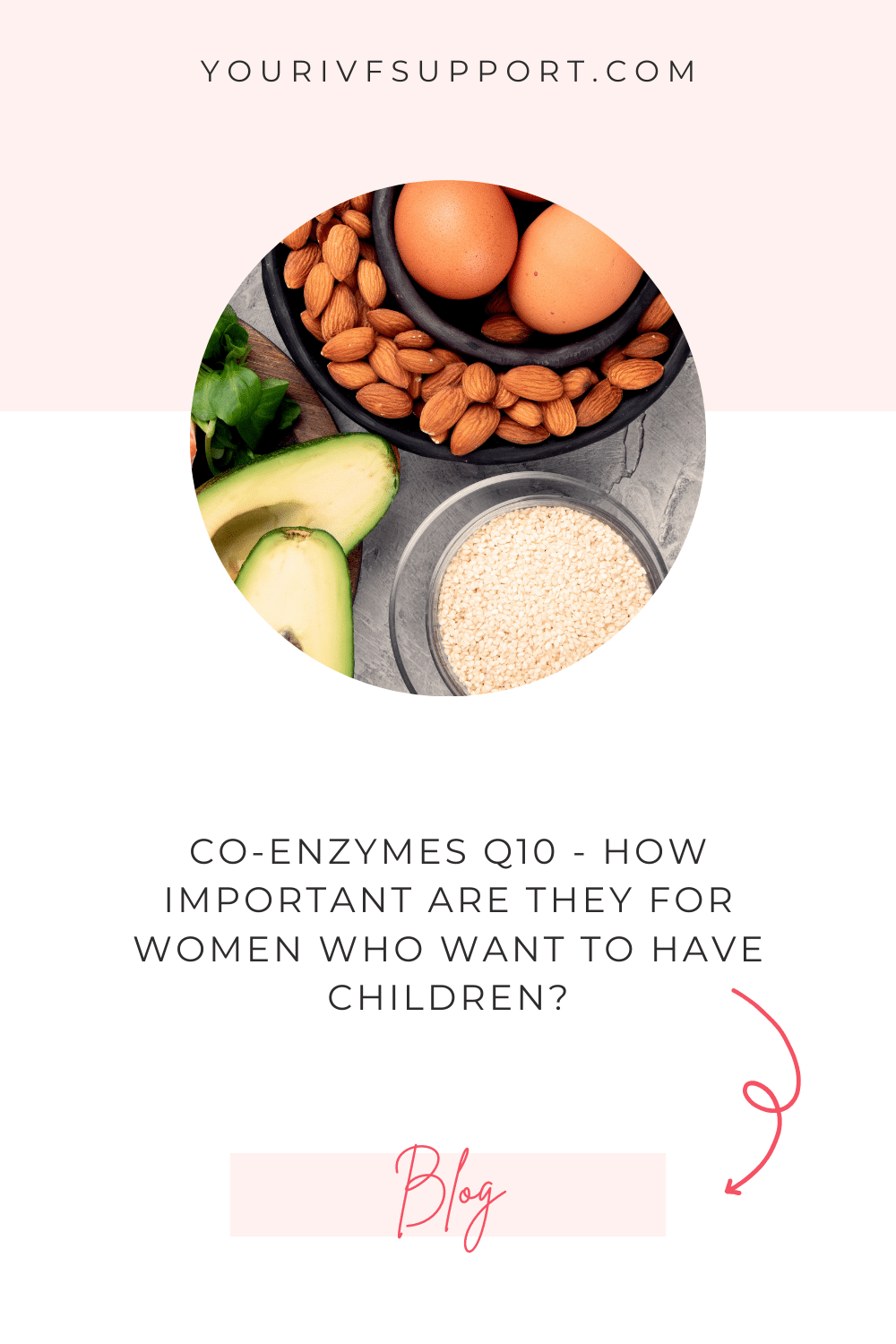
Can fat-soluble molecules improve egg quality?
The fat-soluble molecule Q10, which is said to improve egg quality, strengthens our body's mitochondria. The task of our inner cell power plants is to produce adenosine triphosphate (ATP), which serves the organism as an energy carrier. Do you want a child?
Then the optimal energy supply of your maturing eggs is especially important because it can increase your fertility. Each of your eggs contains thousands of mitochondria. These cell organelles are responsible for important tasks such as egg development and maturation, egg quality and cell protection, and embryo development.
If you want to have a child and are preparing for your pregnancy, you may have heard or read about this vital micronutrient. If getting pregnant hasn't worked out yet and you're thinking about how to improve your health, you might be interested in co-enzyme Q10.
Studies are said to show that co-enzymes can increase the number of fertilisable eggs and thus the chance of becoming pregnant. In advertising, the protein is only referred to for its ability as a natural anti-ageing agent. Yet there are several other uses for co-enzymes, such as strengthening heart function and skin appearance, preventing diabetes, Parkinson's disease and dementia, and possibly improving and prolonging fertility in women and men.
To a small degree, the substance is also produced by our body. In addition, we consume proteins daily through food. However, under high stress and with increasing age, we need significantly larger amounts of these complex energy sources.
Deficiencies are not only suffered by women with an unfulfilled desire to have children, but also by women whose egg reserve is exhausted or who have difficulty getting pregnant due to a miscarriage frequency. Enzyme deficiency is also suspected in connection with polycystic ovarian syndrome (PCOS), silent chronic inflammation and thyroid diseases such as Hashimoto's thyroiditis.
"Since it is known that co-enzymes such as Q10 can strongly promote fertility in women and men, people with an unfulfilled desire to have children often resort to food supplements with this ingredient."
The role of micronutrients in the desire to have children
A good supply of this micronutrient can be crucial for your fertility. The high performance of the mitochondria is very important, especially before a reproductive treatment. Co-enzymes can positively influence ICSI stimulation and the organism's reaction to IVF. This increases your chance of increasing the fertilisation rate and finally becoming pregnant.
Have you already read up on the role of micronutrients in childbearing?
Are you hopeful that using a food supplement with this ingredient will soon make your wish for a child come true?
I advise you to remain critical and not to believe every advertisement. If you eat a healthy and varied diet, your body will produce enough protein itself. Scientific studies have not yet been able to prove a clear connection between a high enzyme concentration and pregnancy.
Whether the natural biocatalyst can actually decisively improve the success rate of fertility treatment is therefore unpredictable. If you still want an additional supply of this enzyme, you can find corresponding preparations in the form of drops or capsules in the shops. Food supplements are available without a prescription at pharmacies. Food supplements containing this vital substance can also be found on the internet.
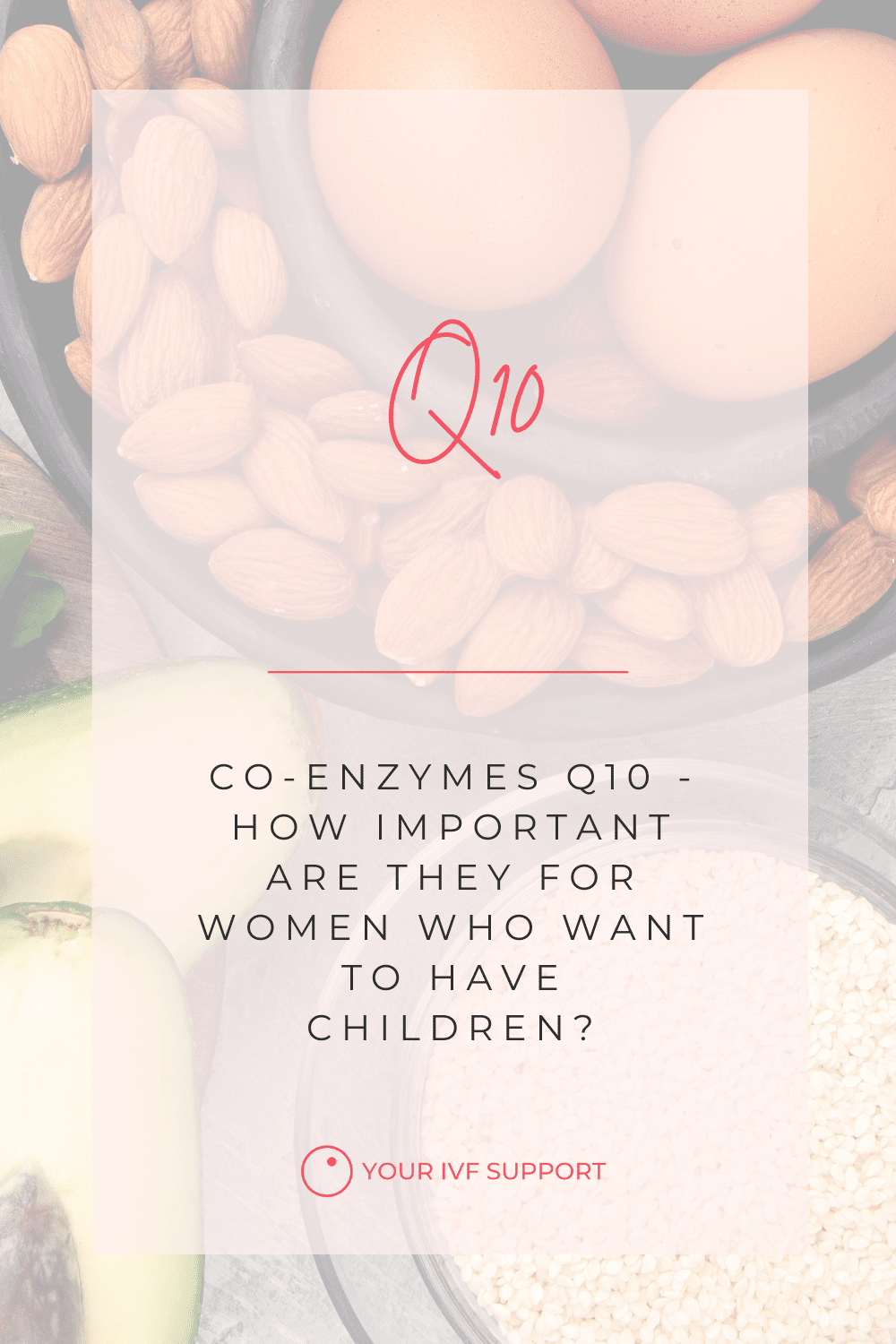
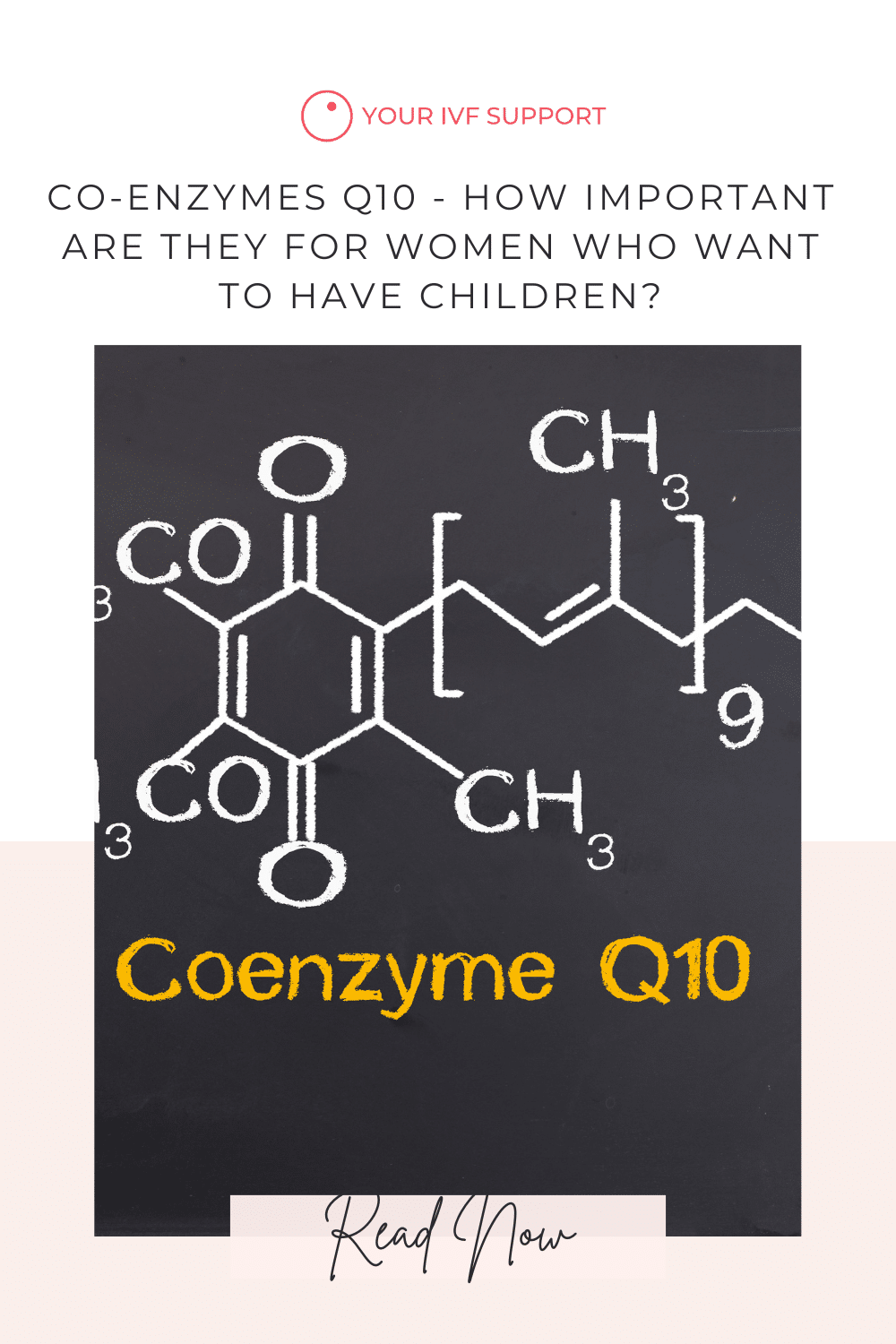
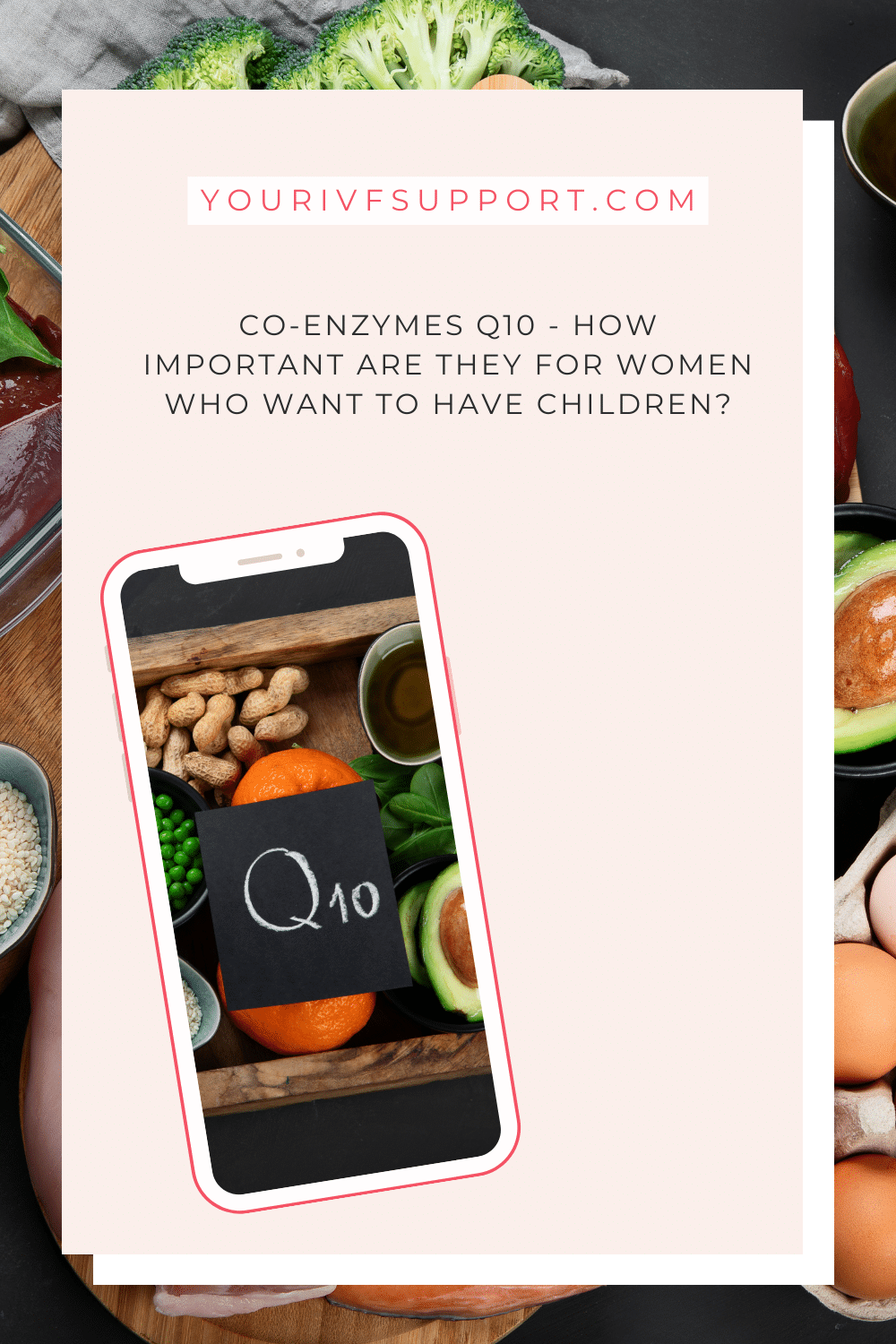
Do enzymes help to increase the chances of pregnancy?
When taking an enzyme preparation, pay attention to the dosage recommendations and instructions of the manufacturer and do not change the dose arbitrarily. A daily dose of 60 to 100 mg is often recommended for women who want to have children. Depending on the product, higher doses may also be considered. For improved absorption, food supplements should always be taken with a meal.
Even over-the-counter medicines can have side effects. If you notice any undesirable side effects or if you cannot tolerate the substance, you should stop taking it immediately and inform your gynaecologist. A healthy, balanced diet rich in vitamins is especially important when you want to have children and during pregnancy. If you want to have a baby, it is better to avoid stimulants such as nicotine and alcohol.
The harmful substances contained in tobacco and alcoholic beverages can negatively affect your fertility. In order to produce valuable enzymes, your body needs the B vitamins and vitamin E. A healthy diet includes as many plant foods as possible, such as cereals and cereal products, potatoes and vegetables, fruit, milk and dairy products. Lean meat and fish are also good sources of energy.
Conclusion
Deficiencies can be avoided with food supplements containing enzymes. Although an effect on fertility has not yet been scientifically confirmed, micronutrients are often used to promote pregnancy, before and after IVF treatment and in cases of unfulfilled desire to have children.
